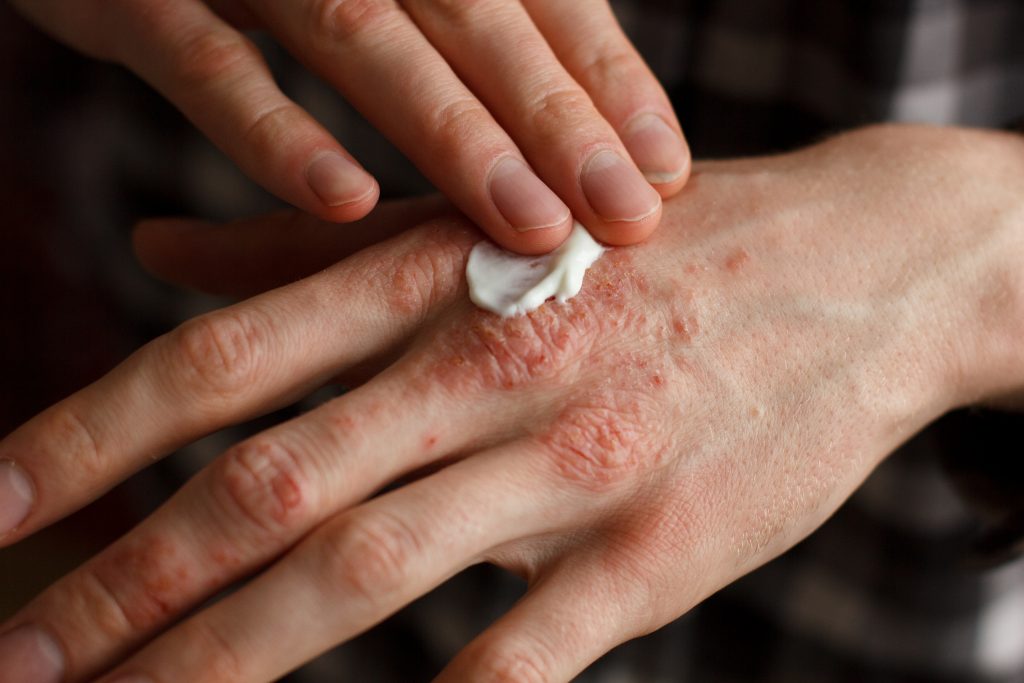Image Source – Google
Psoriasis is a chronic autoimmune disease that affects the skin, causing itchy and painful patches to develop. While there is no cure for psoriasis, researchers are constantly exploring new treatment options to help manage the symptoms and improve the quality of life for those affected by the condition. One promising avenue of research is the development of vaccines specifically targeting psoriasis.
Vaccines work by stimulating the immune system to recognize and destroy specific pathogens or abnormal cells. In the case of psoriasis, the goal of a vaccine would be to instruct the immune system to identify and target the cells responsible for the development of psoriatic plaques. By doing so, vaccines could potentially help prevent or minimize the occurrence of flare-ups.
Several different approaches to vaccine development for psoriasis are being explored. One strategy involves using proteins found specifically in psoriatic plaques as the antigen for the vaccine. These proteins, known as autoantigens, are unique to psoriasis and are believed to play a role in the development of the condition. By using these autoantigens as the target for the vaccine, researchers hope to specifically target the cells involved in psoriasis while leaving healthy cells unaffected.
Another approach is to develop vaccines that modulate the immune system's response to psoriasis. This could involve targeting specific immune cells or molecules that are thought to contribute to the development of psoriatic plaques. By altering the behavior of these immune cells or molecules, researchers hope to reduce the inflammation and abnormal cell growth characteristic of psoriasis.
While the development of a psoriasis vaccine is an exciting prospect, it is important to recognize that vaccine trials can be complex and time-consuming. The process typically involves several phases, starting with preclinical studies in the laboratory and animal models to test the safety and effectiveness of the vaccine. If these early studies are promising, the vaccine may then progress to human clinical trials, which are typically conducted in multiple phases.
Phase 1 trials involve a small number of healthy volunteers and focus on assessing the safety and dosage of the vaccine. If the vaccine shows promise and does not cause significant side effects, it may proceed to Phase 2 trials. In Phase 2 trials, a larger number of participants, including those with psoriasis, are enrolled to further evaluate the safety and efficacy of the vaccine. Finally, Phase 3 trials involve even larger groups of participants and aim to confirm the vaccine's effectiveness and safety in real-life settings.
While the development of a psoriasis vaccine is still in the early stages, there have been some promising findings from initial studies. For example, a recent study published in the Journal of Investigative Dermatology reported promising results from a Phase 1 trial of a vaccine targeting psoriasis. The vaccine, known as PVAC-1, was found to be safe and well-tolerated in the study participants. Additionally, some participants showed improvement in their psoriasis symptoms, suggesting that the vaccine may have a therapeutic effect.
These findings are encouraging and support further research into the potential of vaccines as a treatment option for psoriasis. However, it is important to note that vaccine development is a complex process, and it may take several more years before a psoriasis vaccine becomes available to the general public. In the meantime, individuals with psoriasis should continue to work closely with their healthcare providers to identify the most effective treatment options for their specific needs.
In conclusion, while the development of a psoriasis vaccine is still in the early stages, it holds great promise for improving the lives of those affected by this chronic autoimmune condition. Vaccine trials are currently exploring different approaches, including the use of psoriasis-specific proteins as antigens and the modulation of the immune system's response to psoriasis. While vaccine development is a complex and time-consuming process, recent studies have shown promising results in Phase 1 trials. However, it may still take several more years before a psoriasis vaccine becomes widely available. In the meantime, individuals with psoriasis should consult with their healthcare providers to identify the most suitable treatment options.

